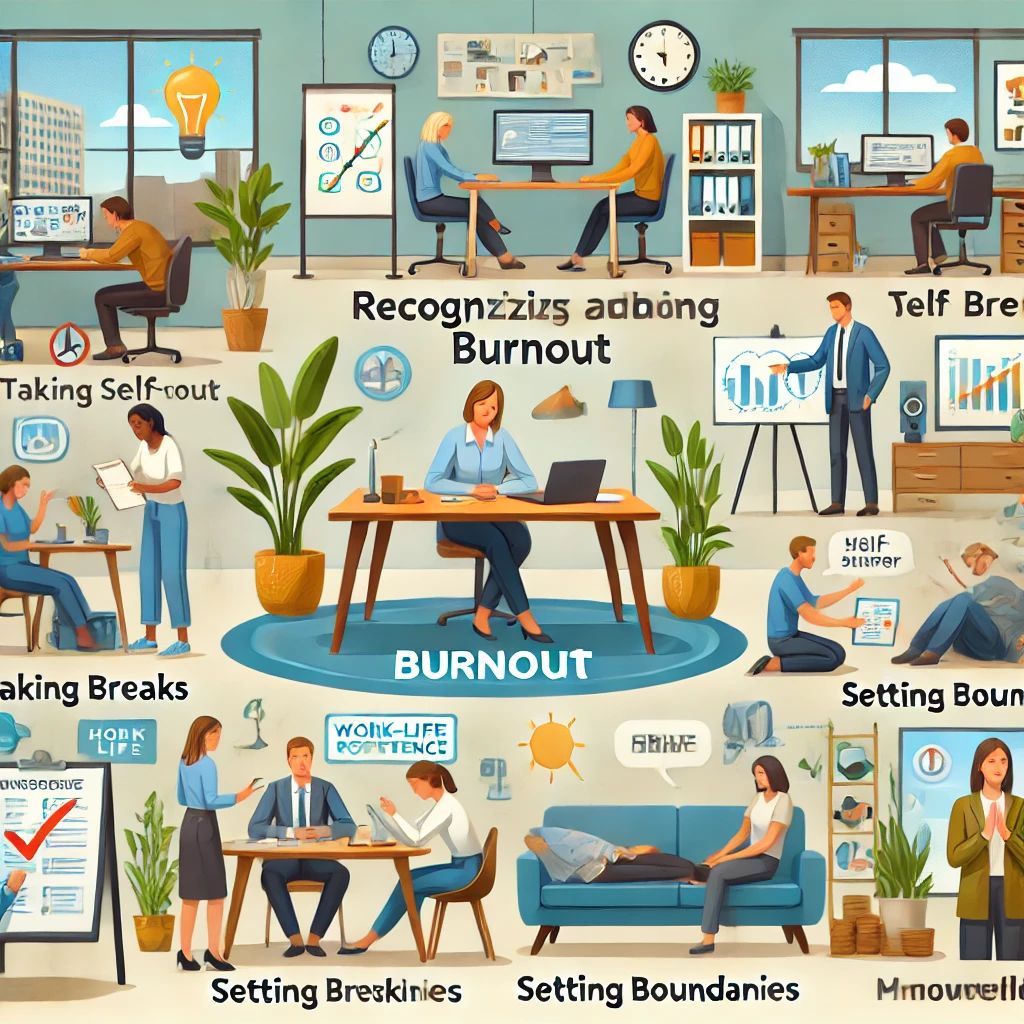
In today's fast-paced world, burnout has become an all-too-common experience. The demands of work, family, and social obligations can leave us feeling overwhelmed, exhausted, and detached. Understanding how to recognize and address burnout is essential for maintaining mental health and well-being. Let’s explore the signs of burnout, its causes, and practical strategies to combat and prevent it.
Recognizing Burnout
Burnout is a state of emotional, physical, and mental exhaustion caused by excessive and prolonged stress. It occurs when you feel overwhelmed and unable to meet constant demands. As the stress continues, you begin to lose interest and motivation, leading to a decrease in productivity and a sense of helplessness. Recognizing the signs of burnout early can help you take steps to address it before it becomes more severe.
Emotional Signs: Burnout often manifests emotionally through feelings of cynicism, detachment, and a lack of accomplishment. You might find yourself feeling constantly drained, irritable, or even experiencing mood swings.
Physical Signs: Chronic fatigue, insomnia, headaches, and muscle pain are common physical symptoms of burnout. You might also notice changes in your appetite or sleep patterns.
Behavioral Signs: Burnout can lead to behavioral changes such as withdrawal from responsibilities, procrastination, and an increase in unhealthy coping mechanisms like overeating, alcohol consumption, or substance use.
Causes of Burnout
Understanding the root causes of burnout is crucial for effectively addressing it. While the causes can vary from person to person, common factors include:
Work-Related Stress: High workloads, long hours, and lack of control over work tasks are significant contributors to burnout. Additionally, unclear job expectations and lack of support from supervisors can exacerbate the situation.
Personal Life Stress: Balancing work with personal life can be challenging. Family responsibilities, relationship issues, and financial stress can add to the burden, leading to burnout.
Perfectionism: Setting unrealistic expectations for yourself and striving for perfection in all aspects of life can lead to chronic stress and burnout.
Lack of Social Support: Feeling isolated or unsupported can increase the risk of burnout. Having a strong social network is essential for coping with stress.
Addressing Burnout
Once you recognize the signs of burnout, taking proactive steps to address it is crucial for your mental health and well-being. Here are some effective strategies to combat burnout:
Prioritize Self-Care: Taking care of yourself is the foundation of preventing and addressing burnout. This includes ensuring you get enough rest, eating a balanced diet, and engaging in regular physical activity.
Set Boundaries: Learning to say no and setting clear boundaries between work and personal life can help reduce stress. Make sure to allocate time for relaxation and hobbies that bring you joy.
Seek Support: Don’t hesitate to reach out to friends, family, or a mental health professional for support. Talking about your feelings and experiences can provide relief and new perspectives.
Practice Mindfulness: Mindfulness techniques such as meditation, deep breathing, and yoga can help manage stress and increase emotional resilience. Incorporating these practices into your daily routine can significantly reduce burnout symptoms.
Manage Workload: If possible, discuss your workload with your supervisor and seek ways to manage it more effectively. This might involve delegating tasks, setting realistic deadlines, or adjusting your work schedule.
Take Breaks: Regular breaks throughout the day can help prevent burnout. Stepping away from your work, even for a few minutes, can refresh your mind and improve productivity.
Engage in Enjoyable Activities: Make time for activities that you enjoy and that help you relax. Whether it's reading, painting, gardening, or spending time with loved ones, engaging in pleasurable activities can rejuvenate your spirit.
Preventing Burnout
Preventing burnout involves making long-term changes to your lifestyle and mindset. Here are some strategies to help you stay resilient and prevent burnout from occurring:
Develop Healthy Habits: Incorporate healthy habits into your daily routine, such as regular exercise, balanced nutrition, and adequate sleep. These habits support overall well-being and reduce the risk of burnout.
Maintain a Work-Life Balance: Strive for a healthy balance between work and personal life. Make time for leisure activities and prioritize spending time with loved ones.
Set Realistic Goals: Setting achievable goals can prevent the frustration and stress that come from striving for perfection. Break down larger tasks into smaller, manageable steps.
Foster Social Connections: Cultivate strong relationships with friends, family, and colleagues. Social support is crucial for coping with stress and preventing burnout.
Practice Gratitude: Regularly reflecting on what you’re grateful for can shift your focus from stressors to positive aspects of your life. Keeping a gratitude journal can help you maintain a positive outlook.
Learn Stress Management Techniques: Developing effective stress management techniques, such as time management, problem-solving, and relaxation techniques, can help you cope with challenges more effectively.
Conclusion
Burnout is a serious issue that can significantly impact your mental health and quality of life. By recognizing the signs of burnout and taking proactive steps to address and prevent it, you can maintain your well-being and lead a more balanced, fulfilling life. Prioritize self-care, set boundaries, seek support, and incorporate healthy habits into your daily routine. Remember, taking care of your mental health is essential, and addressing burnout is a crucial part of this journey. Embrace these strategies to build resilience and thrive in the face of life’s challenges.


